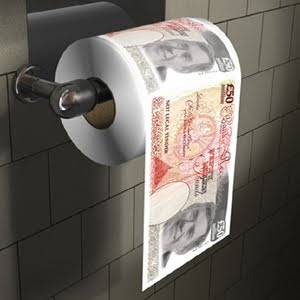The Cost of Common Constipation
Welcome to-The Cost of Common Constipation
Constipation is common and affects male and female of all ages.
A regular bowel pattern can vary massively between individuals, anything from three times a day to every three days can be regarded as normal.
A change in bowel habit, hard pellet like stools and difficulty or straining can be suggestive of constipation.
This can be a short lived episode which resolves or for some people a chronic condition that affects quality of life.
Its estimated that 1 in 7 adults are constipated at anyone time in the UK at a cost of £101million in prescriptions per year(coloplast.co.uk).
Although this figure does not take into account the cost of over the counter laxatives which would easily exceed the prescription cost.
Its difficult to imagine exactly how much the cost of common constipation actually amounts too.

Laxatives
There are various types of laxatives that work by different mechanisms to aid emptying of the bowel.
Laxatives can be helpful in short term, however long term use of laxatives can result in a dependency.
This is exactly as it sounds, where the bowel becomes reliant on laxatives to empty and dosages need to be increased in order to have the same desired effect.
There are more natural methods of managing constipation, I am sure we are all aware of the importance of fibre in our diet. The message is everywhere, “fibre keeps you regular”.
Many sufferers of IBS can often steer clear of fibre, associating it with bloating and flatulence, but this need not be the case. Some foods are suited better than others and fibre should be increased gradually to prevent these symptoms.
New UK recommendations for fibre have been introduced from July 2015 due to many of the health benefits including weight management, diabetes and heart disease.
The daily goal is now 30g of fibre as opposed to the previous 23g.
This may not sound like much, however when we consider the average intake of fibre is only 18grams per day, were just over half way towards meeting the new target(British Nutrition Foundation).

Dietary fibre or roughage refers to the undigested parts of plant material. Fruit, vegetables and cereal products all contain soluble and insoluble fibre.
Unlike Carbohydrates, Protein and Fat, fibre is not absorbed by the body, instead it travels along the intestine until it is defecated.
Because fibre is not absorbed, eating more fibre will result in a larger faecal mass.
The larger the stool, the easier it is for the muscles in the colon to help move the stool towards the rectum.
Fibre retains a lot of water which helps lubricate the bowel wall allowing the stool to slide along fairly easily.
Fibre retains water, it is important to drink enough fluids at the same time as increasing fibre in your diet.
Constipation Causing Incontinence

Faecal overflow is the term used to describe compacted constipation where there may leakage or a runny discharge.
The longer our poop stays in the colon, the more water is reabsorbed by the intestinal wall.
The body is great at preserving energy and regulating hydration so this can be very helpful.
However, as more water is reabsorbed from the stool, the harder it becomes and less lubricated.
This hard stool can act like a cork, as more poop builds up behind this stool, pressure increases, the bowel stretches fluid can often seep around the hard stool and out of the anus.
This can often come without warning, leading to soiling of underwear of explosive diarrhoea.
This can be easy to manage with simple changes in diet and lifestyle.
- Keeping activeRegular exercise will help stimulate bowel to contract and encouraging the stool to move along the intestine. This means the bowel absorbs less water and the stool remains soft and well lubricated. Any exercise can help including walking, jogging, cycling for 30 minutes a day will not only improve general health, it will reduce risk of heart attack, stroke and diabetes (Scandanavian Journal of Gastroenterology,2005).
- Dietary changeGradually increasing fibre will help provide stool bulk and keep the stool soft and moist. Its important to introduce fibre gradually as too much fibre at once can cause bloating and cramping.
- HydrationHelps keep the stool soft and lubricated. Fibre retains water therefore it is important to drink plenty of fluids whilst increasing dietary fibre. Aim for 2- 2.5 litres of fluid/ day. Fluid intake includes soup, tea, coffee, soft drinks and water in fruit (British Nutrition Foundation).
- Don’t hold it in.If you need to go-GO! Delaying a bowel motion prolongs the length of time that the stool remains in the bowel. More moisture is absorbed from the stool making it harder and difficult to pass (niddk.nih.gov).
Helpful hint- It is important to increase dietary fibre gradually over several days, this is less likely to cause bloating ad discomfort.
Have you got a question? We want to help!
Tell us what you want from IBSDietSolutions!
Join our mailing list and get access to our goodies!

